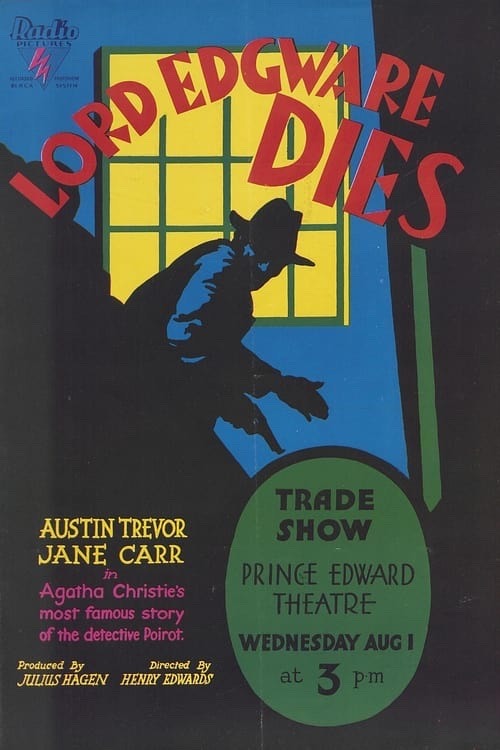Lord Edgware Dies (1934)
Jul. 19th, 2023 11:42 amI have given myself a project this summer, which is to watch as many of the Agatha Christie film adaptations as I can and make a list of the campiest. This was inspired by my love of Evil Under the Sun (1982), which it should go without saying gets the top prize. In the course of this project, I am watching a lot of christies which will not make the list but which I still want to talk about! So they will go here.
Starting with: Lord Edgware Dies (1934)

I was pretty sure this one wasn't going to fit the brief but wanted to watch it anyway because it's probably the earliest surviving christie*! This was actually Austin Trevor's third go as Poirot, but the preceding two--Alibi and Black Coffee--are thought lost. So much about Poirot as a character has come to represent the 1930s, so it was fascinating to see him in his time, as it was. Also fascinating to see him like THIS!

You might think that Poirot is the man on the right--short, balding, mustachioed, yes? no. Poirot is on the left. In this film, he is tall, slim, and clean-shaven. Hastings is the one on the right, bless him. This is a detective duo clearly seen through the lens of Sherlock Holmes adaptations of the time: the gentleman detective and his bumbling assistant. And this Hastings is so dumbed down that it's a wonder he's able to feed himself. He walks into walls, gets his umbrella caught on multiple people and objects, and is consistently so many steps behind Poirot that he's not even on the same map. He reminded me nothing so much as Kate Beaton's Jam Watson.
Aside from that, this suffers from the same issues as many films of the time: it's glacially paced, woodenly acted, and largely lacking in charm--aside from Jane Carr's Lady Edgware, who was delightfully stylish and morally bereft. There were a couple of set pieces which felt modern to me, but only coincidentally. My favourite period detail was how loud the soda siphon was whenever someone made themselves a drink.
I have a few other very early Christies on my list, and am looking forward to seeing how they compare! Especially since Christie herself was adapting her own work for the stage (and vice versa) at this point.
* Le Coffret de Laque ("The Lacquered Box"--a French adaptation of Black Coffee) dates from 1932 and may be retained somewhere. I doubt I'll be able to find it, however.
Starting with: Lord Edgware Dies (1934)

I was pretty sure this one wasn't going to fit the brief but wanted to watch it anyway because it's probably the earliest surviving christie*! This was actually Austin Trevor's third go as Poirot, but the preceding two--Alibi and Black Coffee--are thought lost. So much about Poirot as a character has come to represent the 1930s, so it was fascinating to see him in his time, as it was. Also fascinating to see him like THIS!

You might think that Poirot is the man on the right--short, balding, mustachioed, yes? no. Poirot is on the left. In this film, he is tall, slim, and clean-shaven. Hastings is the one on the right, bless him. This is a detective duo clearly seen through the lens of Sherlock Holmes adaptations of the time: the gentleman detective and his bumbling assistant. And this Hastings is so dumbed down that it's a wonder he's able to feed himself. He walks into walls, gets his umbrella caught on multiple people and objects, and is consistently so many steps behind Poirot that he's not even on the same map. He reminded me nothing so much as Kate Beaton's Jam Watson.
Aside from that, this suffers from the same issues as many films of the time: it's glacially paced, woodenly acted, and largely lacking in charm--aside from Jane Carr's Lady Edgware, who was delightfully stylish and morally bereft. There were a couple of set pieces which felt modern to me, but only coincidentally. My favourite period detail was how loud the soda siphon was whenever someone made themselves a drink.
I have a few other very early Christies on my list, and am looking forward to seeing how they compare! Especially since Christie herself was adapting her own work for the stage (and vice versa) at this point.
* Le Coffret de Laque ("The Lacquered Box"--a French adaptation of Black Coffee) dates from 1932 and may be retained somewhere. I doubt I'll be able to find it, however.
no subject
Date: 2023-07-20 03:55 am (UTC)no subject
Date: 2023-07-20 04:06 am (UTC)